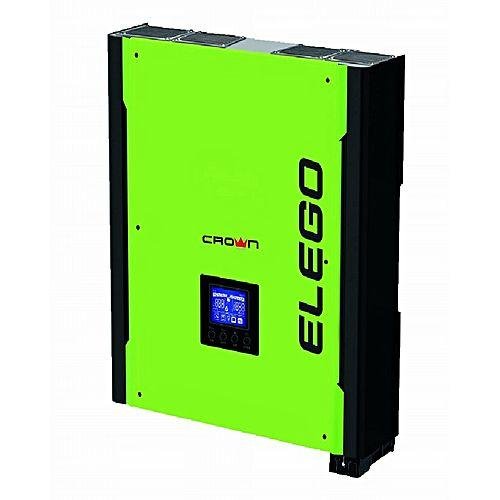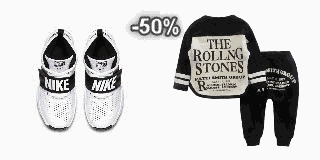The 10KW Three-Phase Inverter: Powering Modern Industrial and Renewable Energy Systems

As industries and renewable energy sectors expand, the need for efficient and reliable power conversion has never been greater. The 10KW three-phase inverter plays a critical role in bridging the gap between DC power sources—like solar panels or batteries—and the three-phase AC power required by industrial machinery and commercial grids. This article explores what makes the 10KW three-phase inverter essential in today’s energy ecosystem, its working principles, benefits, and where it’s most effectively applied.
What is a 10KW Three-Phase Inverter?
A 10KW three-phase inverter is a power electronic device designed to convert 10 kilowatts of direct current (DC) electricity into three-phase alternating current (AC). The "three-phase" aspect means the inverter produces three sinusoidal AC outputs, each phase shifted by 120 degrees. This arrangement ensures a constant and balanced power supply suitable for heavy-duty electrical loads and industrial equipment.
How Does it Function?
The inverter uses a series of high-speed electronic switches (like IGBTs or MOSFETs) that chop and modulate the DC input voltage to create AC waveforms. By controlling the timing and duration of these switches, the device generates smooth, sinusoidal output currents on all three phases, making the power compatible with motors, grid systems, and other AC devices.
Key Advantages of 10KW Three-Phase Inverters
Reliable Power for Industrial Applications
The 10KW rating fits medium-sized industrial loads, providing enough power to run machinery such as pumps, compressors, and CNC machines efficiently. Three-phase power reduces mechanical vibrations and improves motor lifespan, making operations more reliable.
Seamless Integration with Renewable Energy
Renewable sources like solar panels and wind turbines produce DC power that must be converted before use or grid integration. The 10KW three-phase inverter ensures this power is efficiently transformed into grid-compatible AC power, supporting cleaner energy adoption.
Energy Efficiency and Cost Savings
With efficiency often exceeding 95%, these inverters minimize energy loss during conversion. This leads to lower operational costs and helps businesses reduce their carbon footprint.
Typical Applications of 10KW Three-Phase Inverters
Solar PV Systems for Commercial Use
Commercial solar installations frequently use 10KW three-phase inverters to convert solar energy into usable AC electricity. Their ability to feed power into the grid or power internal loads makes them ideal for businesses aiming to reduce energy costs.
Industrial Motor Control
Many industrial processes rely on three-phase motors. The 10KW inverter can regulate motor speed and torque through variable frequency drive (VFD) functionality, enhancing process control and energy efficiency.
Backup Power and UPS Systems
In critical environments like data centers and hospitals, 10KW three-phase inverters form part of uninterruptible power supplies (UPS), ensuring smooth power transitions during outages and protecting sensitive equipment.
EV Charging Infrastructure
As electric vehicle adoption rises, three-phase inverters are used in some charging stations to deliver stable, high-capacity power required for fast and efficient charging.
Features to Consider When Selecting a 10KW Three-Phase Inverter
Output Quality
Choose inverters delivering pure sine wave output to prevent damage to sensitive electronics and ensure compatibility with the grid.
Protection Mechanisms
Essential safety features include overcurrent protection, overvoltage and undervoltage protection, short circuit prevention, and thermal shutdown.
Communication and Monitoring
Remote monitoring capabilities enable real-time performance tracking, fault diagnosis, and firmware updates, enhancing system reliability.
Certification and Compliance
Make sure the inverter complies with regional electrical standards and grid codes, such as IEC, UL, or IEEE, to guarantee safe and legal operation.
Installation and Maintenance Best Practices
Install the inverter in a location free from moisture, dust, and extreme temperatures. Proper ventilation is crucial to prevent overheating. Regular maintenance should include cleaning cooling fans, verifying electrical connections, and software updates where applicable.
Challenges and Considerations
-
Complexity: Three-phase inverters require proper design and skilled installation to avoid issues like harmonic distortion or unbalanced loads.
-
Cost: Higher initial investment compared to single-phase units but justified by improved performance and efficiency.
-
Grid Compatibility: Ensuring the inverter meets grid interconnection standards is essential, especially for renewable energy projects feeding power back to the utility.
Looking Ahead: Innovations in Three-Phase Inverters
Emerging technologies such as wide-bandgap semiconductors (SiC and GaN), AI-driven control systems, and enhanced connectivity options promise to make 10KW three-phase inverters smaller, smarter, and more efficient. These improvements will further support the integration of renewable energy and smart industrial automation.
Conclusion
The 10KW three-phase inverter is a cornerstone technology in modern power systems, offering efficient DC to AC conversion tailored for medium-scale industrial and renewable energy applications. By providing balanced, reliable power and supporting advanced control features, these inverters enable businesses and utilities to optimize energy use and embrace sustainable practices. Selecting the right inverter with suitable features and certifications will ensure long-term performance and system resilience.





